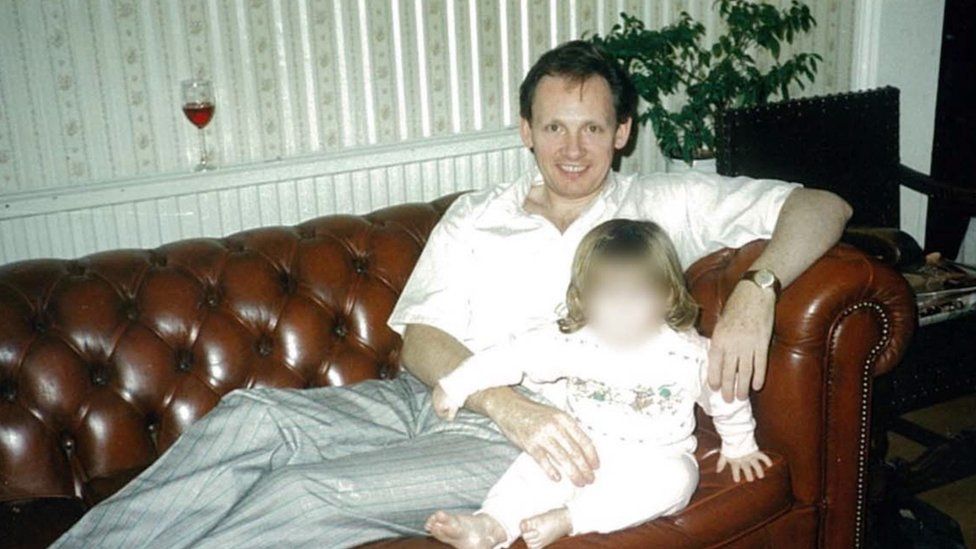Government refuses law change on child-abuse retrials
- Published

Victims of sexual abuse have said they feel "desperately let down" after ministers refused to add child abuse to a list of serious crimes that can be retried if new evidence emerges.
Charities and a group of ex-footballers had campaigned for reform of double-jeopardy laws in England and Wales.
A cross-party group of MPs and the victims' commissioner had backed them.
But Justice Minister Robert Buckland said it would have "inevitably" led to calls for other crimes to be included.
Football coach
Currently, only 29 "serious crimes" - including murder, rape and some class-A drug offences - allow for suspects to be tried more than once, where "strong and viable" new evidence has emerged.
But the victims' commissioner, Vera Baird, had wanted this extended to cover non-penetrative sexual abuse of children, prompted by the case of former football coach Bob Higgins.
He was jailed in June 2019 for indecently assaulting 24 boys - but six other complainants were told their allegations were not serious enough to be tried for a second time.
The All-Party Parliamentary Group on Adult Survivors of Childhood Sexual Abuse had also backed calls for change, following the case.
'Substantially lower'
In a letter seen by the BBC's Victoria Derbyshire programme, Mr Buckland told Ms Baird he had "reluctantly concluded" extending the law would "not be right".
He said the maximum prison sentence for child sexual abuse was "substantially lower" than for the crimes already covered by double jeopardy and widening the law "would inevitably lead to demands for the inclusion of other offences" - in particular, "crimes of violence".
He added: "Ultimately, there is a risk that retrial might come to be regarded not as an extremely rare exception to the double-jeopardy rule but as a species of prosecution appeal".
'It doesn't feel like justice'
One complainant described current double-jeopardy laws as a "slap in the face".
The man she accuses of child sex abuse, former music-tour manager Michael Murphy, 72, went on trial in July 2018 for 15 counts of historical abuse against five children - including indecent assault, gross indecency and rape.
He was found not guilty on three charges and the jury could not decide on the other counts.
At a second trial, in February 2019, Murphy was found guilty of all remaining 12 charges but, under double jeopardy, the jury could not reconsider the not-guilty verdicts from the first trial.
"I was told I couldn't have anything to do with a second trial," the complainant said.
"I understand why double jeopardy is there but once they have been found guilty, it's clear they have done it to someone else.
"I was hoping that, if he went to prison, it would be enough to feel justice - but it really doesn't."
Ex-Southampton FC youth footballer Dean Radford, one of the six men whose allegations against Higgins could not be retried, said he was "desperately disappointed".
"Any normal person on the street can see that any child abuse should be deemed serious enough [to be re-tried]," he said.
"This is just another example of the government sweeping it under the carpet because they don't want to put the resources into it."
Dean Radford told BBC News in June there had been "no justice" for him
Dino Nocivelli, a lawyer for five of the men, said Mr Buckland "failed to listen to the thousands that have signed a petition demanding change to the double jeopardy laws".
He added he would continue to seek a meeting with the minister "so he can see first hand the impact of his decision".
If you have been affected by sexual abuse or violence, help and support is available at BBC Action Line.
- Published13 June 2019
- Published14 November 2019